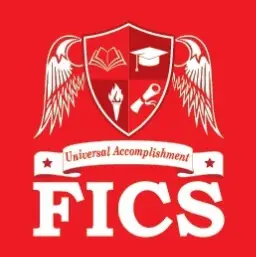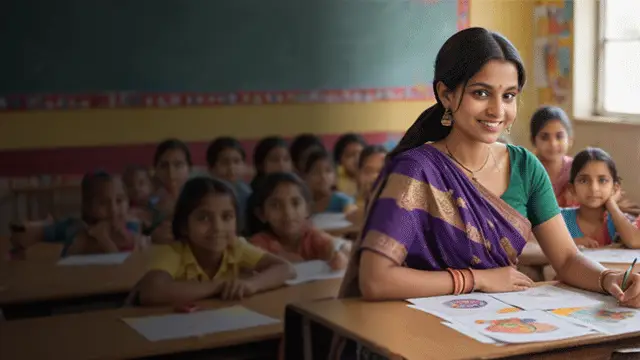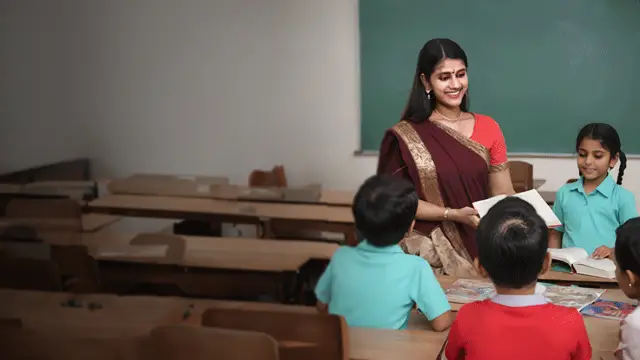Online Montessori Teacher Training Course with Certification
Transform your passion for teaching into a fulfilling career! Enroll in the Entri Elevate Online Montessori Teacher Training Certification Program — Exclusively for women.
Online
6 months
_5141.webp)


Why Choose Entri Montessori Teacher Training Course
The Entri Elevate Montessori Teachers Training Course, designed exclusively for women, provides comprehensive training in the Montessori method of education. It covers essential areas such as lesson planning, curriculum development, classroom management, and child psychology. The program also includes ECCE (Early Childhood Care and Education) certification, enabling learners to understand early childhood development deeply and prepare them to work effectively with young children in preschool and kindergarten settings. This course aims to equip teachers with the skills and knowledge required to foster a positive, engaging, and effective learning environment for young learners.

6- Month Course (Diploma) &9-Month Course (PG-Diploma) with 1 year Certificate

Study Notes PDF

Live & Recorded Sessions
_3179.svg)
Expert Faculty Guidance

Live Exam Through Zoom

Diploma/ PG Diploma Certificate

Montessori Practical Sessions

BOOKS (POSTEL)

Spoken English class
Skills Covered in Montessori TTC
Outlined below are the skills essential for a Montessori teacher
Online Montessori TTC Course with placement support
In this academic year alone, over a thousand women have stepped into their dream profession of teaching through the Entri Montessori course. ENTRI Elevate has successfully initiated a revolutionary change in the pre-primary education method. Experienced faculty members with years of expertise will train you in this course — all at the most affordable fee. Now, you too can turn your dream of becoming a teacher into reality, right from the comfort of your home.
Montessori Teacher Training Course Fees Structure
Hear What Our Students Have to Say
Career & Business Opportunities
Montessori School Teacher
A Montessori school teacher guides young children in a self-directed, hands-on learning environment that fosters independence, creativity, and holistic development.
Traditional Preschool Teacher
A traditional preschool teacher follows a fixed curriculum to teach young children foundational skills through structured lessons, group activities, and teacher-led instruction.
Start your own Pre-School
Start your own pre-school and build a rewarding career by creating a nurturing, educational space that shapes the early learning journey of young children.
Play school Teacher
A play school teacher nurtures early childhood development by engaging young children in playful, interactive activities that promote learning, social skills, and creativity.
Abroad Teaching Opportunities
Abroad teaching opportunities offer educators the chance to work in international settings, gain global experience, and explore diverse cultures while advancing their teaching careers.
Montessori Teacher Training Course Syllabus
Gain insights into the Montessori Teacher Training Course Curriculum below!
Montessori Teacher Training Course- Blogs
Check out our popular blogs!
As you prepare for your Montessori teacher interview, it’s crucial to be well-prepared for the questions that will assess not only your knowledge but also your ability to apply Montessori principles in real-life scenarios.
Montessori teachers in India play a crucial role in fostering a love for learning during a child’s formative years. They are responsible for implementing the Montessori method, emphasizing self-directed activities, collaborative learning, and individualized instruction.
Here are the frequently asked questions and answers for the Montessori Teacher Training exam. Those candidates who wish to crack the exam shall refer to the questions and try to frame and answer for themselves.
Online Montessori teacher training programs are designed to provide educators with the knowledge and skills necessary to effectively implement the Montessori method in the classroom.
As a B.Ed or D.El.Ed graduate, you’re trained to teach, but a Montessori Teacher Training Course (TTC) can transform your career into something extraordinary. In 2025, Kerala’s early education sector is booming, with a 25% surge in teaching jobs.
Setting up a Montessori school is no mean feat. It requires a lot of time, effort, dedication and hard work. In this article, we have listed some steps that will help you start a Montessori school.
This blog explores where, why, and how to land your dream Montessori teacher job opportunities abroad.
Early Childhood Care and Education (ECCE) encompasses a wide range of activities and educational programs that contribute to a child’s growth in the formative years, from birth to eight years old. In India as more parents and educators realize the importance of these early years ECCE has become the focus for giving children a good start in life.
Download Montessori TTC Study Material for Free 📥
Learn Educational Psychology.
Eligibility for Montessori Teacher Training Course

Age
There is no restriction on age.

Education
Diploma in MTTC – Candidates who have completed +2 education from any stream are eligible to apply. PG Diploma in MTTC – Open to candidates with a Bachelor’s degree in any discipline.
Why Live Sessions
Live interactions
Enable real-time interactions and participation with instructors and other students, facilitating an active learning environment.
Immediate Response
Instructors can provide immediate response and feedback on assignments, discussions, queries, and contributions, enabling continuous improvement.
Practical Experience
Provide a space for a live demonstration of teaching techniques, tools, classroom management, and other strategies.
Group Discussions
Streamline group discussion and exchange of ideas, promoting teamwork with peer groups.
Individual Attention
Offer personalized attention, support, and guidance based on the learners' needs.

Expert Mentors
Our Montessori mentors are experienced educators and certified professionals, dedicated to guiding you every step of the way in your teaching journey.
Montessori Teaching Tips
Follow the Child’s Interests
Observe each child to identify their interests and provide opportunities to explore them. Tailoring lessons to their curiosity enhances engagement and learning.
Emphasize Hands-On Learning
Use tactile materials and manipulatives to teach abstract concepts. For example, Montessori bead chains can help children understand numbers and math in a tangible way.
Foster a Love of Learning
Encourage exploration and curiosity by keeping the classroom environment dynamic and filled with engaging materials. Allow children to discover answers on their own, and provide gentle guidance instead of direct instruction. When children feel empowered in their learning process, their intrinsic motivation grows.
Use Hands-On Materials
Montessori emphasizes learning through tactile experiences. Use hands-on materials like the Pink Tower or the Bead Frame, which help children grasp abstract concepts in math and language. These materials allow children to visualize and manipulate ideas in a concrete way, which enhances understanding and retention.
Promote Freedom with Boundaries
While children in Montessori classrooms have freedom to choose their activities, they are also taught to respect boundaries. Set clear guidelines for behavior and ensure that children understand the expectations for using materials and interacting with others. This balance of freedom and structure promotes discipline and responsibility.
Follow the Child
One of the core principles of Montessori is to observe each child closely and tailor activities to their interests and developmental stage. Rather than imposing a fixed curriculum, guide children based on their natural curiosity and pace, allowing them to explore concepts that intrigue them most.
Create a Prepared Environment
A Montessori classroom should be organized and child-friendly, with materials easily accessible at the child's level. Materials should be organized into areas of learning (like language, math, and sensorial) and should be self-correcting, allowing children to engage with them independently and learn from their own mistakes.
Encourage Independence
In Montessori classrooms, children are encouraged to perform tasks on their own to build confidence and independence. Offer activities that children can complete independently, like practical life skills (pouring, sweeping) or self-care tasks (buttoning, tying shoes). This develops fine motor skills and a sense of accomplishment.
Expert Trainers
Our Montessori trainers are certified professionals with rich teaching experience, passionately committed to helping you become a confident and skilled educator.
Montessori Course Certificate FAQs
Courses Recognised by



Frequently Asked Questions
What Our Students are Saying
Enrolled by StudentsKey Learning Outcomes
Inclusion
Implementing strategies for supporting children with diverse learning needs and abilities
Empowerment
Create opportunities for children to engage in practical activities that promote independence and life skills.
Educating
Understand the role of a Montessori reaching as a guide, facilitator, evaluator, and many more
Child Development
Learn to observe and access children's needs, interests, and progress.
Montessori Advocacy
Advocate for the value and importance of Montessori education within the border educational community.

FAQs - Montessori Training Course
Find Your Program and Up-skill
Entri News
Advantages of Montessori Teacher Training
Child-Centered Approach
Prioritize the child's interests, choices, and independence in the learning process.
Creativity Enhancement
Nurture children's creativity and imagination through open-ended exploration, artistic expression, and imaginative play.
Personal and Professional Growth
Enhance your personal and professional growth by developing strong leadership, effective communication, and classroom management skills.
Effective Communication
Teach effective communication strategies for building positive relationships with children, families, and colleagues.
Rising Global Demand for Montessori Educators
The need for qualified Montessori teachers is increasing worldwide, offering excellent job stability and a wide range of career opportunities.
Engaging Online Learning Experience
Participate in live Q&A sessions, interactive discussion forums, and collaborative learning activities. Gain access to exclusive Montessori teaching resources and study materials.
Explore Free Montessori Courses
Montessori Coaching in Different Cities
Who Can Apply for this Course?
- Students
- Aspiring Teachers
- B.Ed / D.El.Ed Holders
- Parents or Caregivers
- Career Changers
- Preschool Staff or Daycare Workers
- Homemakers



















































